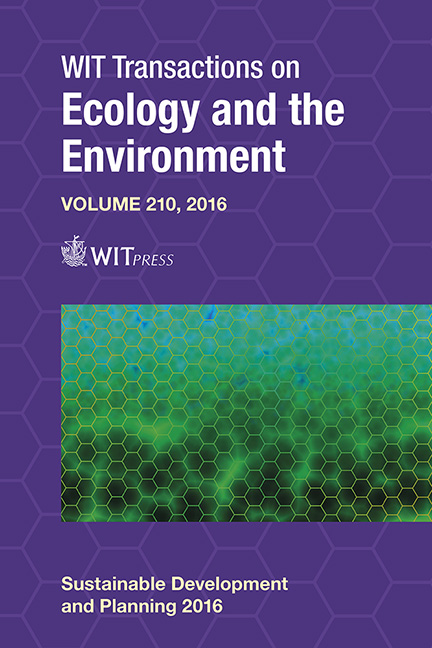Community Based Solid Waste Management Strategy: A Case Study Of Kaduna Metropolis
Price
Free (open access)
Transaction
Volume
210
Pages
12
Page Range
761 - 772
Published
2017
Size
839 kb
Paper DOI
10.2495/SDP160641
Copyright
WIT Press
Author(s)
Y. A. Rigasa, A. G. Badamasi, N. Galadimawa, G. U. Abubakar
Abstract
Kaduna Metropolis is the capital city of Kaduna State, Nigeria and comprises four local governments. It is experiencing rapid urbanization and its associated challenges, including management of municipal solid waste (MSW). Solid waste management is currently handled by government engaged contractors who are paid for their services from public funds. Such contractors operate around public land uses and major roads. Other areas of the metropolis are serviced by the informal sector. Since transfer stations, public waste bins and official waste dumps are not easily accessible to the populated, low income areas, the informal waste contractors readily dispose MSW in drains and streams leading to floods during the rainy season. Residents of such areas are at risk and lack the organization, funding and structure to mitigate and adapt to the situation. Recently, MSW has become a resource, an opportunity for the poor to earn a living. Non participation of communities in MSW management constitutes a challenge. This study examined the development of community participation in MSW management in Kaduna and recommends the way forward. Data for the study was collected through questionnaires, focus group interviews and field inspection of six locations of mostly low income and densely populated areas of Kaduna. An average 88% of these people want free solid waste management services, a difficult desire in view of the resultant zero cost recovery. The study recommends an integrated MSW management structure involving government waste contractors, the informal sector and the communities.
Keywords
municipal solid waste, solid waste disposal, community participation, waste management, sustainability





